Graphene Oxide Dispersion, 8 mg/mL, in H2O
€57.00 – €1,095.00
Description
Graphene Oxide Dispersion
Purity: 99,5+%, 8 mg/mL, in H2O
Graphene Oxide (GO) is the oxidized form of graphene nanoplatelets. It can be reduced with various chemical or physical treatments.
In many of the chemical exfoliation experiments graphene is synthesized by reducing graphene oxide which comes from chemically treated
graphite powder. Graphene oxide is also an attractive material for electronics industry because of its semiconducting properties. Graphene
oxide is generally hydrophilic and can be dispersed in water (as it is in this dispersion). The graphene oxide dispersions exhibited long-term
stability and were made of sheets between a few hundred nanometers and a few micrometers large, similar to the case of graphene oxide
dispersions in water. For applications requiring the highest uniformity in size and lowest prices, you can choose us to meet your needs.
Technical Properties:
| Graphene Oxide Purity (%) | 99,5+ |
| Graphene Thickness (nm) | 0,4-1,1 (single layer) |
| Diameter (µm) | 1-5 µm |
| Appearance | Black Liquid |
| Concentration (wt‰) | 8 (can be easily diluted)- 8 mg/mL |
| SPECIFIC SURFACE AREA (m2/g) | 800-1600 |
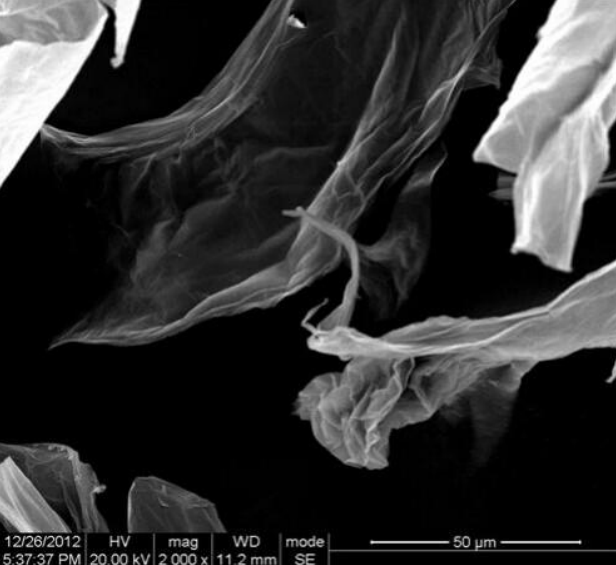
TEM Image of NG01GO0501(Graphene Oxide Dispersion)
Applications:
- Graphite oxide, formerly called graphitic oxide or graphitic acid, is a compound of carbon, oxygen, and hydrogen in variable ratios,
obtained by treating graphite with strong oxidizers. - Graphene The maximally oxidized bulk product is a yellow solid with C:O ratio between 2.1 and 2.9, that retains the layer structure
of graphite but with a much larger and irregular spacing. - Graphene The bulk material disperses in basic solutions to yield monomolecular sheets, known as graphene oxide by analogy to
graphene, the single-layer form of graphite. - Graphene oxide sheets have been used to prepare strong paper-like materials, membranes, thin films, and composite materials.
- Initially graphene oxide attracted substantial interest as a possible intermediate for the manufacture of graphene.
- The graphene obtained by reduction of graphene oxide still has many chemical and structural defects which is a problem for some
applications but an advantage for some others.
Additional information
| Quantity | 30 ml, 60 ml, 120 ml, 500 ml, 1000 ml |
|---|
You must be logged in to post a review.


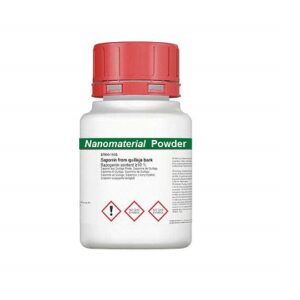
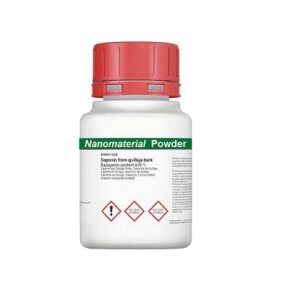
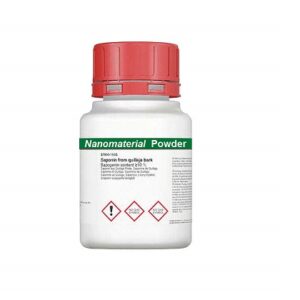
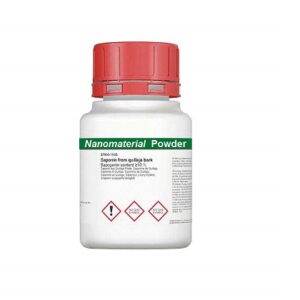
Reviews
There are no reviews yet.